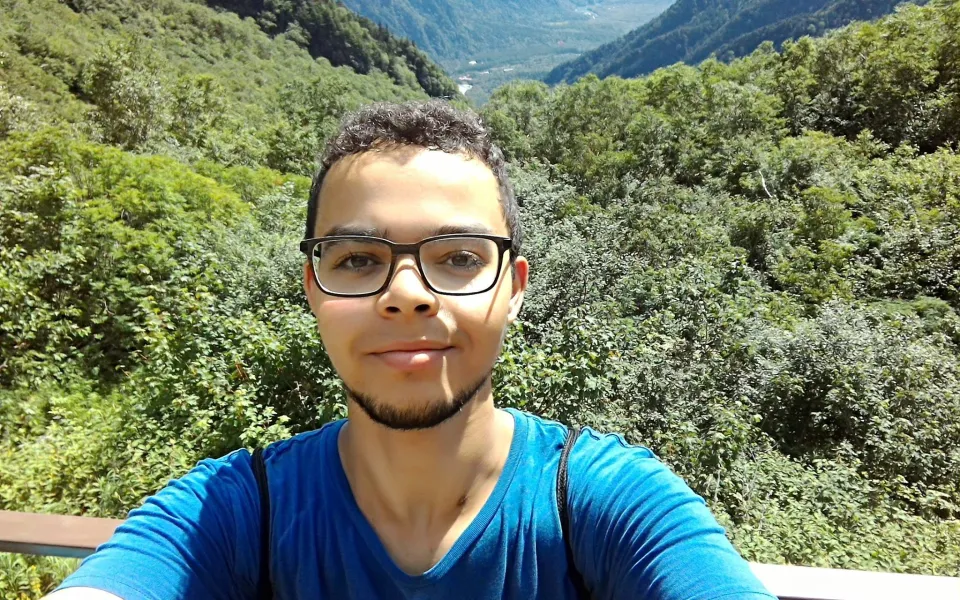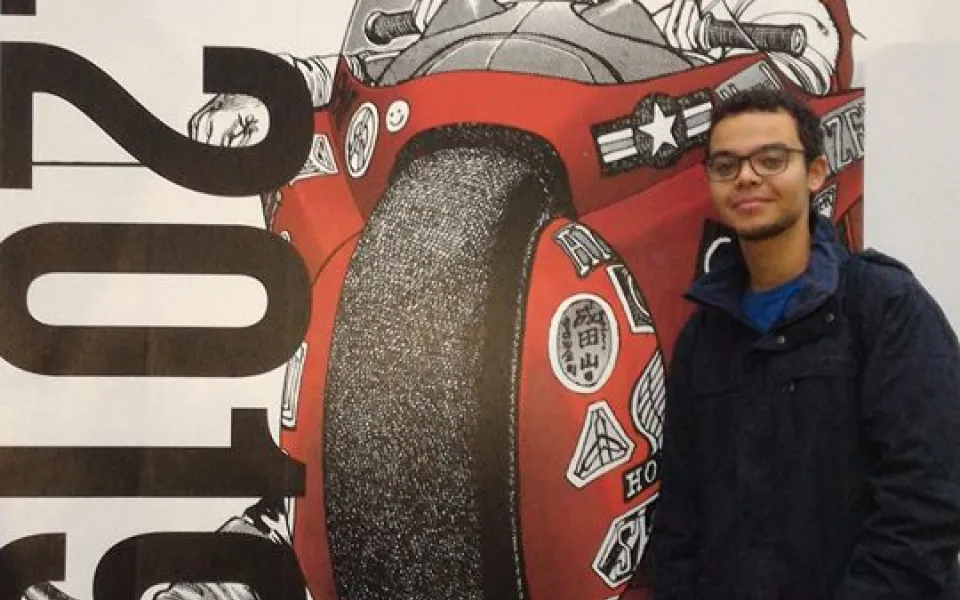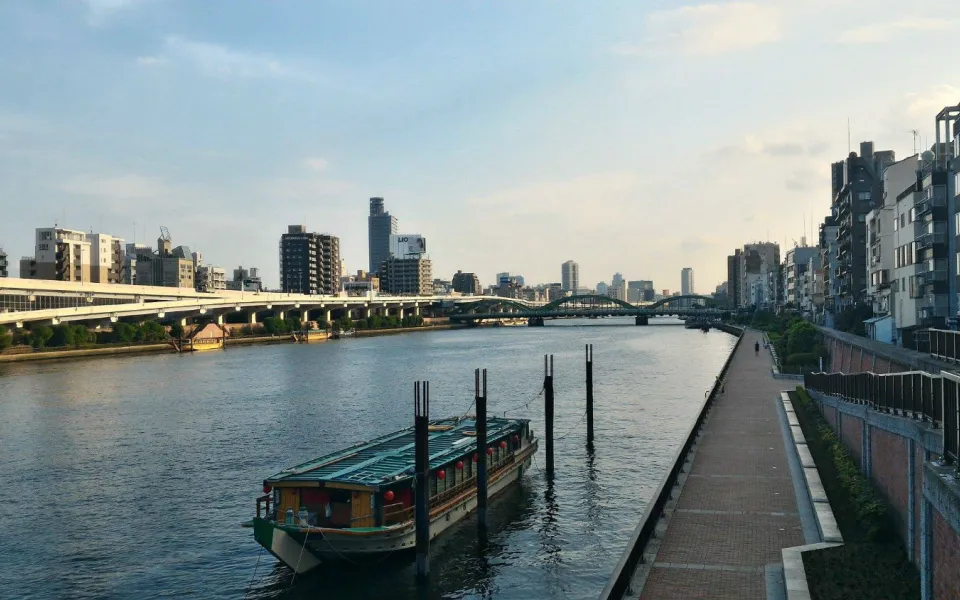Koshin during his internship in Japan!
"The culture is completely different from what I’m used to in the Netherlands, and it’s great to learn from each other’s culture."
Read Koshin’s story here!

Page content
Hey! Where are you from? Where do you study/live/work?
Konnichiwa! I’m from Bilthoven, Utrecht, and I’m a third-year computer science student at the University of Applied Sciences in Utrecht. Besides that, I’m self-studying Japanese.
What was the first thing you thought when you arrived in Japan?
A dream come true! I spent a long time looking for an internship in Japan, and when I finally arrived, I was absolutely thrilled!
What was the most shocking difference between the Netherlands and Japan?
The most shocking thing for me is how quiet people are in everyday life, both on the street, in restaurants, and at work. You have to be aware of how your surroundings behave and adapt to it; otherwise, you stand out too much. But on Fridays and weekends, people switch gears and party! Also, it’s striking how much quality is put into the smallest things; if you buy food, the plate is beautifully presented, and when buying souvenirs or other products, everything is very solidly made.
What does your typical workday look like?
My typical workday is from 10 AM to 6 PM with some self-study afterwards. I bike to the station (just like in England, people drive on the left!) and take the subway to my work in Ginza. On Fridays, I either go out for drinks with colleagues or visit cities around Tokyo that are on my wishlist.
How is the work atmosphere at your internship company?
The work pressure is high because quick results are expected, and everyone gets their own project to work on. It’s an international company full of people from different backgrounds, so a high level of English is a must. Speaking Japanese is not required, but since more than half of my colleagues are Japanese, it’s definitely a plus.
Have you ever experienced homesickness? How did you deal with it?
I haven’t experienced homesickness yet, but I think that’s because I prepared a lot before traveling to Japan. After about a year(!) of searching and self-study, I started with quite some prior knowledge, so if you want to do the same: prepare well!


Do you feel at home in Japan? Why (not)?
Yes, I like the neighborhood I live in, and it’s not too busy. If I want to buy something quickly, there are plenty of convenience stores (7-Eleven is the best!) nearby, and for weekly groceries, supermarkets are within biking distance. I live in a shared house with 8–10 housemates from various backgrounds, and it’s quite cozy and affordable. I also go to a community center on weekends to meet Japanese people and improve my language skills.
Give us tips on who you should befriend abroad. The Russians? The Irish? The Chileans?
The Japanese themselves, of course! The culture is completely different from what I’m used to in the Netherlands, and it’s good to learn from each other’s culture. Many Japanese people want to know more about the Netherlands, so it’s easy to start a conversation (as long as you know a bit of Japanese). There are also quite a few Chinese and Koreans in the city, with whom I’ve made nice contacts. Also, definitely check out Meetups! That’s a great way to meet people easily.
Describe the people of Japan in three words.
Calm, neat (as the largest city in the world, Tokyo is even cleaner than Utrecht!), and cultural.
Was there a typical local dish you REALLY couldn’t eat?
I cook a lot myself and go to various restaurants for lunch. I haven’t eaten a dish I didn’t like yet. In Japan, there are many unusual sauces, and out of curiosity, I once bought one called Ajipon. That was really terribly disgusting — don’t buy it if you’re trying to cook something!
What did you learn from your experience abroad? Was it the beloved community you liked? The cheap cocktails? The beautiful nature? Or was your experience less than expected? Details, we want details!
What I learned is to improve my language skills and to make contacts with all kinds of international people. For my internship, I took a trip through the mountain areas of Japan, and the nature is definitely beautiful! Not to forget what it’s like to live independently in an Asian country! I definitely have the idea to come back someday, most likely to Fukuoka, in southern Japan. It’s not an easy country to live and work in; you have to adapt to the behaviors of the people there and understand the language, but beyond that, it’s a very pleasant place to live.
